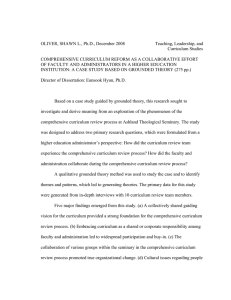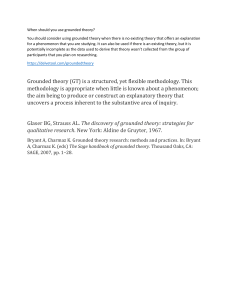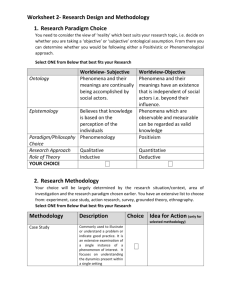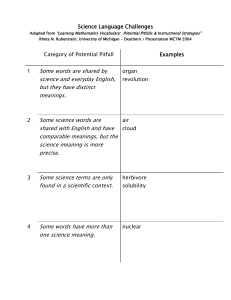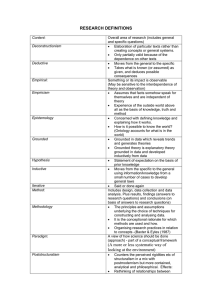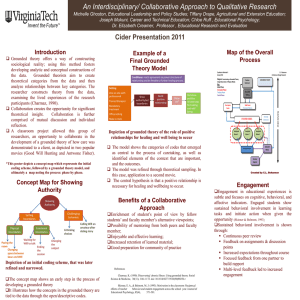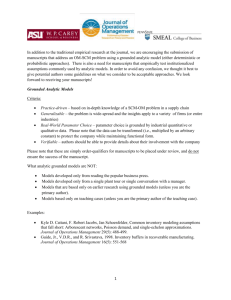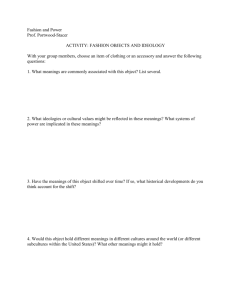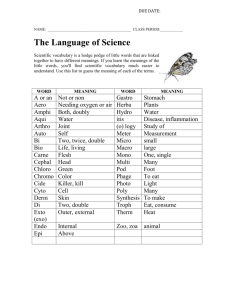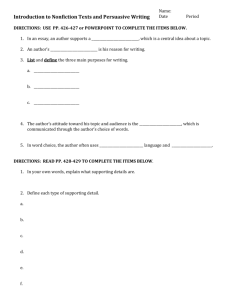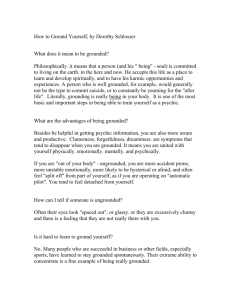Title: From the Bottom up: A Grounded Theory Approach to the
advertisement
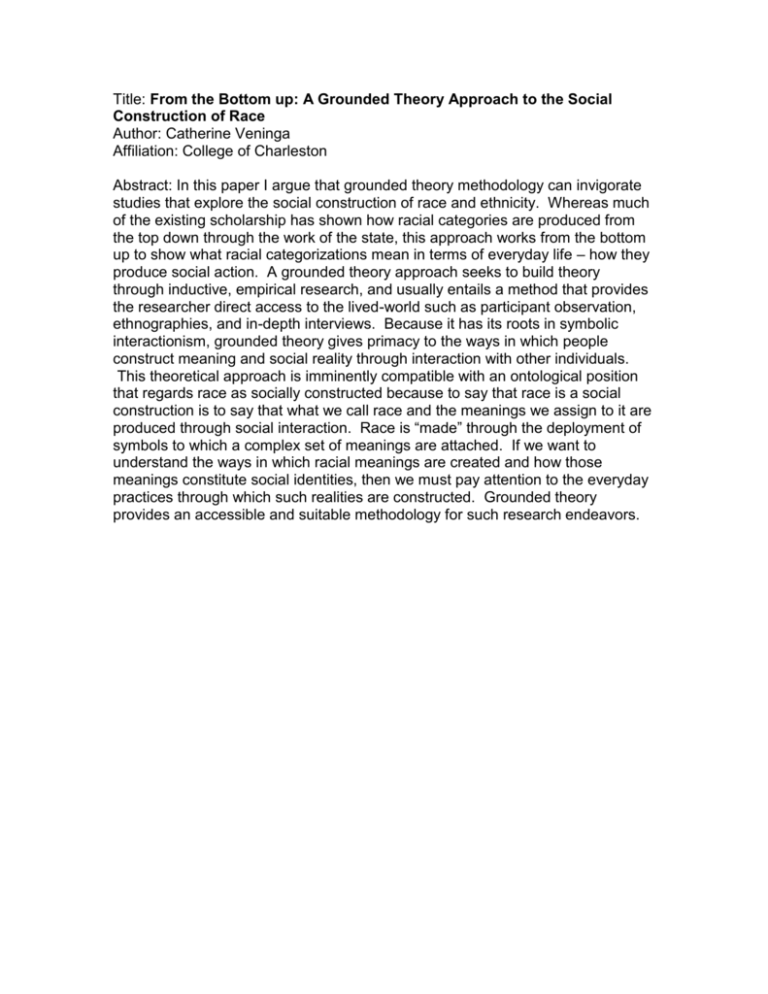
Title: From the Bottom up: A Grounded Theory Approach to the Social Construction of Race Author: Catherine Veninga Affiliation: College of Charleston Abstract: In this paper I argue that grounded theory methodology can invigorate studies that explore the social construction of race and ethnicity. Whereas much of the existing scholarship has shown how racial categories are produced from the top down through the work of the state, this approach works from the bottom up to show what racial categorizations mean in terms of everyday life – how they produce social action. A grounded theory approach seeks to build theory through inductive, empirical research, and usually entails a method that provides the researcher direct access to the lived-world such as participant observation, ethnographies, and in-depth interviews. Because it has its roots in symbolic interactionism, grounded theory gives primacy to the ways in which people construct meaning and social reality through interaction with other individuals. This theoretical approach is imminently compatible with an ontological position that regards race as socially constructed because to say that race is a social construction is to say that what we call race and the meanings we assign to it are produced through social interaction. Race is “made” through the deployment of symbols to which a complex set of meanings are attached. If we want to understand the ways in which racial meanings are created and how those meanings constitute social identities, then we must pay attention to the everyday practices through which such realities are constructed. Grounded theory provides an accessible and suitable methodology for such research endeavors.
